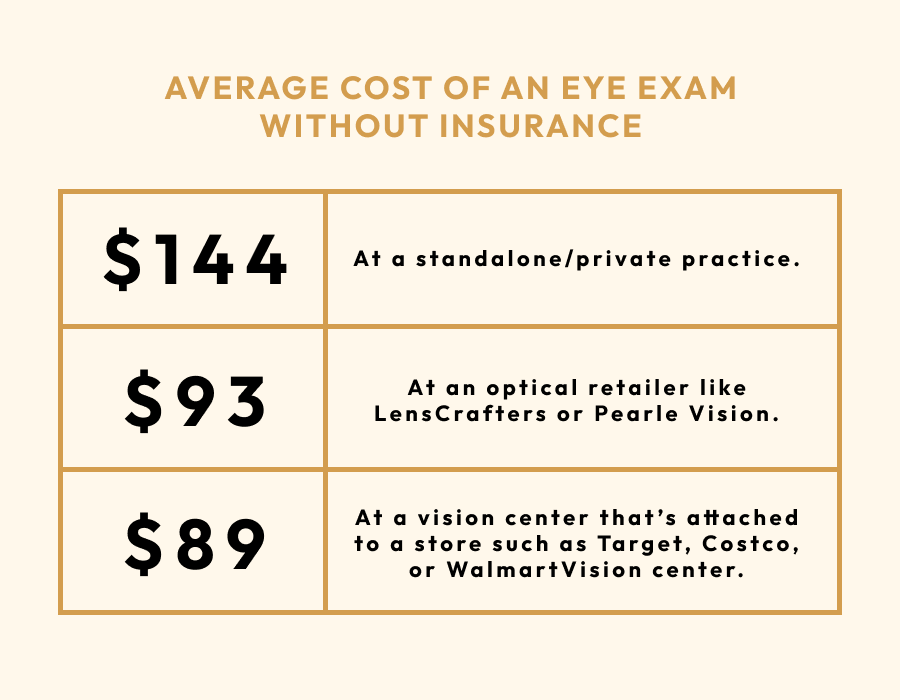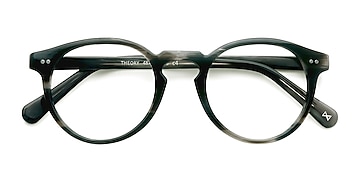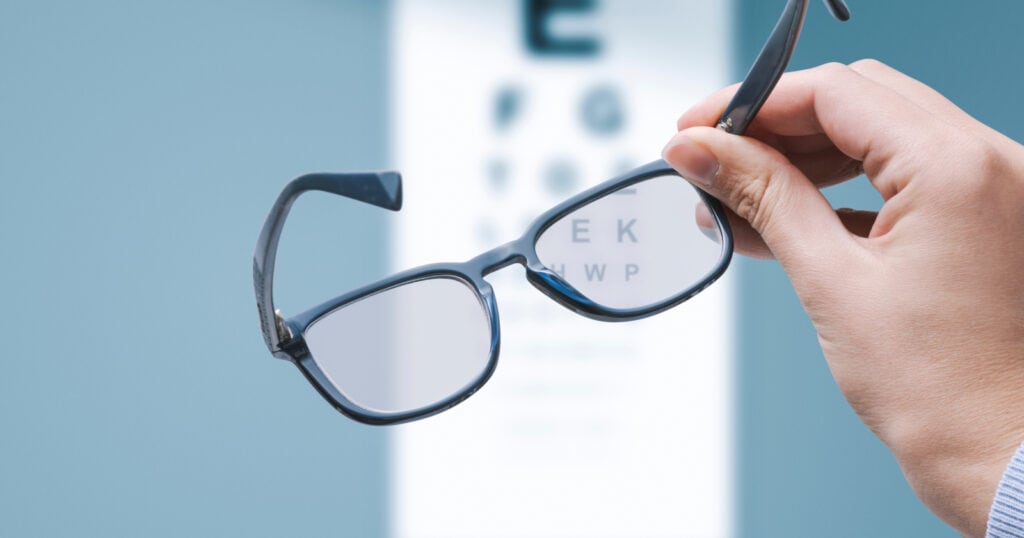Eye exams are one of the most important steps you can take to protect your vision, but the cost can vary widely depending on where you go and what services you need. This guide breaks down what to expect, how to save, and how to make informed choices for your eye health.

Understanding Eye Exam Costs
Understanding the factors and average costs of eye exams can help you better plan for your eye care needs.
Factors Affecting Eye Exam Costs
The cost of an eye exam can be influenced by several factors:
- Location – Pricing often depends on geography, with urban areas typically charging more than rural communities due to higher demand and operating costs.
- Type of exam – Basic vision tests are less expensive than comprehensive exams, which screen for serious conditions such as glaucoma. Additional tests, including genetic screening for eye diseases, may increase costs.
- Insurance – Vision insurance is a primary factor in cost reduction. Coverage levels vary, so review your plan to understand what is included.
- New and returning patients – If you’re revisiting an eye doctor you’ve seen before in private practice, it might be worth asking about a discount for existing patients. This type of discount may not exist at retail chains and vision centers, but their eye exam costs may be more affordable.
- Contact lens exam and fitting – You’ll need a separate exam for contacts because additional tests are needed to determine what type of contact lens you need. The price of the contact lens exam depends on the doctor, so it’s a good idea to ask before your appointment.
Average Cost of Eye Exams
In the United States, eye exam costs can range from $50 to $250. Exams at retailers may be more affordable, while private clinic visits tend to be pricier. Without insurance, a standard exam usually costs around $100. Prices depend on the provider and services included. It’s advisable to inquire about costs upfront to avoid unexpected expenses.
By understanding these factors and typical expenses, you can more effectively plan your eye care, whether it’s for a routine checkup or a more detailed examination.
Saving Money on Eye Exams
There are a few factors that can help you save money on your eye exam, including using eye insurance or taking advantage of certain discounts.
Using Insurance for Eye Exams
Insurance can significantly reduce the cost of eye exams, often covering a substantial portion of the fees. If you have vision insurance, verify your coverage details. Some plans fully cover annual eye exams, while others may have a minimal co-pay. Utilizing a Health Savings Account (HSA) or Flexible Spending Account (FSA) can also offer savings, as these accounts allow you to use pre-tax dollars for medical expenses like eye exams.
If you have vision insurance, you pay regular premiums so you can pay less at the time of your service. A vision plan can help you save money on many eye-related health costs, including:
- Annual comprehensive eye exams
- Medical treatments when necessary
- Vision correction, including prescription eyeglasses and contact lenses
- Lens upgrades such as scratch-resistant and anti-reflective coatings
- Eye surgery like LASIK
The cost of vision insurance depends on your provider and plan. You can usually save money by using an eye doctor who’s in your plan’s network of providers.
Discounts and Offers to Reduce the Cost of Eye Exams Without Insurance
What you pay for an eye exam without insurance will depend on where you go. A 2023 survey of 100 eye doctors around the U.S. found these average exam prices:
- $144 at a standalone/private practice
- $93 at an optical retailer like LensCrafters or Pearle Vision
- $89 at a vision center that’s attached to a store such as Target, Costco, or Walmart Vision Center
You may be wondering why the price at retail chains and vision centers is so much less than at a standalone practice. In most cases, this is to cover additional operating costs. While you can get a comprehensive eye exam at any of these locations, a vision center or optical retail chain may be more affordable if you don’t have vision insurance.
Many providers offer discounts and special promotions to make eye exams more affordable. Look for seasonal deals, such as back-to-school or holiday promotions. After your eye exam, you’ll want to save money on your eyewear and lenses, too. Some retailers provide eyewear discounts for specific groups, students, and military members. Eyebuydirect even offers a Referral Program and Loyalty Program to help offset the cost of lenses and frames. Utilizing these promotions can greatly reduce eye care expenses.
Importance of Regular Eye Exams
Regular eye exams are crucial for eye health and overall well-being. They provide much more than vision assessments by helping identify health issues early.
Health Benefits of Eye Exams
Eye exams are key for early detection of eye diseases such as glaucoma and macular degeneration, often silent in progression. Regular checkups enable eye care professionals to identify these conditions before significant harm occurs, allowing for more effective treatment.
Additionally, eye exams can reveal signs of broader health issues like diabetes and high blood pressure, emphasizing the importance of eye examinations in holistic health care.
Frequency of Eye Exams
The recommended frequency of eye exams depends on one’s age and health risks. The following guidelines should be met for each age group:
- Children – Should have their first exam at six months, followed by exams at three years and before starting school. School-age children should have exams every two years.
- Adults aged 18 to 60 – Should undergo an eye exam every two years.
- Adults over 60 – Should have yearly exams.
Individuals with risk factors like family histories of eye disease, diabetes, or high blood pressure may require more frequent visits.
Choosing the Right Eye Care Professional
Choosing the appropriate eye care professional is critical for maintaining eye health. Understanding the differences between optometrists and ophthalmologists can help you make an informed choice.
Optometrist vs. Ophthalmologist
Optometrists and ophthalmologists both provide eye care but in varying capacities:
- Optometrists – Hold a Doctor of Optometry (OD) degree to perform routine eye exams, prescribe glasses, and treat minor eye issues like pink eye or dry eyes.
- Ophthalmologists – Medical doctors who perform surgeries and treat major eye diseases, ideal for conditions like wet macular degeneration requiring surgical intervention.
Finding a Trusted Eye Care Provider
Choosing a reliable eye care provider involves:
- Checking credentials – Verify qualifications and read patient reviews.
- Getting recommendations – Seek advice from friends, family, or your doctor for trusted referrals.
- Considering location – Choose nearby eye care providers offering flexible appointment times.
- Assessing communication – Ensure the provider explains matters clearly and addresses your queries comprehensively.
By understanding the roles of optometrists and ophthalmologists and selecting the right provider, you ensure that your eyes receive the expert care they need.
It’s important to take care of your eyes by getting an annual comprehensive eye exam. With a little time and effort, you can find an eye doctor who will provide the vision care you need at a price you can afford. And if you need glasses, Eyebuydirect has got you covered!











